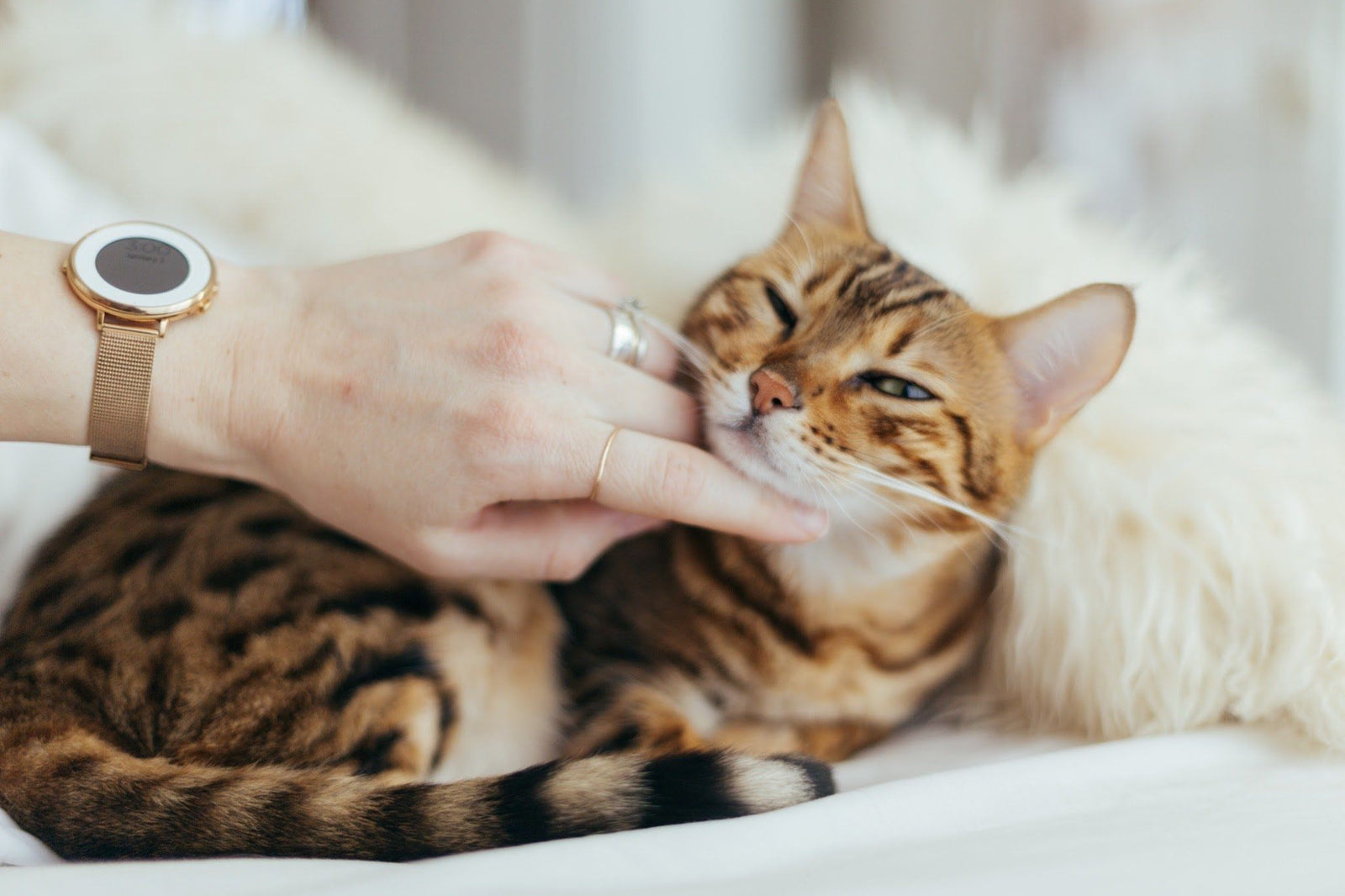
One thing’sfur sure as a cat owner… your cat will bite you (even if it’s a playful nibble). You know it. I know it. Your cat knows it. As someone who’s been bitten by a few cats in my lifetime, let me tell you that despite how unpleasant it feels, it’s notpurrsonal! (Well, most of the time.) There can be many reasons why they’ll bite, nibble or chew on their owners’ arms, ankles, hands, you name it-- even when it seems unprovoked. Even the cuddliest kitty is a hunter who has the instinct to bite when it feels threatened, overstimulated, or just playful.
As a cat owner, you’re most likely wondering a few things such as, “why does my cat bite me randomly when I pet them?”; or “how can I stop my cat from biting me?”; or even “what should I do when my cat takes a hard bite?” Ouch! Any type of bite can be uncomfortable, unpleasant, and downright painful but rest assured our experts at PrettyLitter are to help! We took a deep dive into thepawsible meownings of why your cat is exhibiting biting behavior and other bite-related concerns you may or may not have.
Kitten Bites
Ahhh, kittens… adorable, cuddly, and mischievous babies. And just like babies, kittens go through a teething phase. They also are blossoming hunters who love to play bite their siblings, mother, or other close friends (you). Play biting, a form of play fighting, is an important part of a kitten’s developmental stage because it teaches them how to stalk, hunt, and pounce on their prey before they face the unknowns of the world… or in your case,the world within your home. Though learning these skills is key to a kitten’s development, understanding how to calm a kitten down after playtime is essential, as well.

While you should absolutely encourage play biting, you really shouldn’t play games that involve your feline friend biting your fingers or toes. Some owners think it’s cute when a kitten pounces at their feet and bites their toes and, sure, while those bites won’t necessarily hurt because of the kittens’ size, they will definitely be painful if this type of kitten biting behavior lingers into adulthood. Being bitten by a young kitten is cute until it’s not. We encourage cat parents to invest in different toys that their kittens can chase, hunt, and bite to their hearts’ desire. Also, as part of raising a kitten, it’s important to remember to always reward them for catching and “killing” their prey after playtime. Rewarding them with treats and affection is one of the most effective ways to prevent them from biting you in other situations.
Unprovoked Bites
The most common type of cat bite is the unprovoked bite. Picture this: you’re cuddling on your bed with your furbaby in your lap, watching your favorite TV show. As you gently pet their soft fur while whispering sweet nothings to them about how much you love and adore them, your sweet, little angel suddenly bites you! Ouch. Repetitive petting in sensitive areas, like behind their tail, can result in overstimulation and excite them to the point of biting. It’ll most likely be a gentle, warning bite at first to let you know that you should pause the petting. Ignoring these gentle warnings will definitely result in a more aggressive bite. Gauging your cat’s body language can sometimes be hard but there are subtle signs, like a swish of the tail or flattening of the ears, that you should keep an eye out for to prevent harsher bites.
Love Bites
Sometimes, you’ll notice your cat affectionately biting you then licking you. This type of biting behavior is commonly believed to be carried on from early kittenhood and their interactions with their mothers. Since their mothers would nibble and lick their fur while grooming, it’s believed that they are showing you, their cat parent, similar affection. Cats (and kittens) only playfully or gently bite those they feel comfortable and close with. Basically, a love bite is their way of telling you that you two are family.
Tired of your home smelling like you have a cat?
15% off PrettyLitter
Try it today Use code: PRETTYBLOG
Serious Bites
This is the type of bite you should be worried about! Aggressive, intentional bites can cause serious infections due to bacteria in cats’ saliva. Usually, these bites happen when cats display other forms of aggressive, warning signs, prior to the hard bite such as:
- Spitting
- Hissing
- Having an arched back
- Fluffing their tail
In case your cat severely bites you: wash the wound and seek medical help. Do not punish your cat because they won’t understand why they’re being punished (since biting is a natural cat behavior) and punishing them can cause further hostility later on.
One Last Bite
Unsurprisingly, the best way to prevent unwanted bites is to get to know your feline! Being in tune and aware of their body language, boundaries, and enjoyment of touch will help you better navigate cat parenthood and the bites that come along the way. Remember to invest in toys to redirect unwanted bites and to reward them with treats and affection afterward to reinforce those behaviors.
Sources:
1. https://www.purina.co.uk/articles/cats/behaviour/training/stop-cats-biting
2. https://vethelpdirect.com/vetblog/2020/07/09/why-does-my-cat-bite-me-unprovoked/
3. https://www.petmd.com/cat/behavior/cat-love-bites-what-do-they-mean

Follow Us